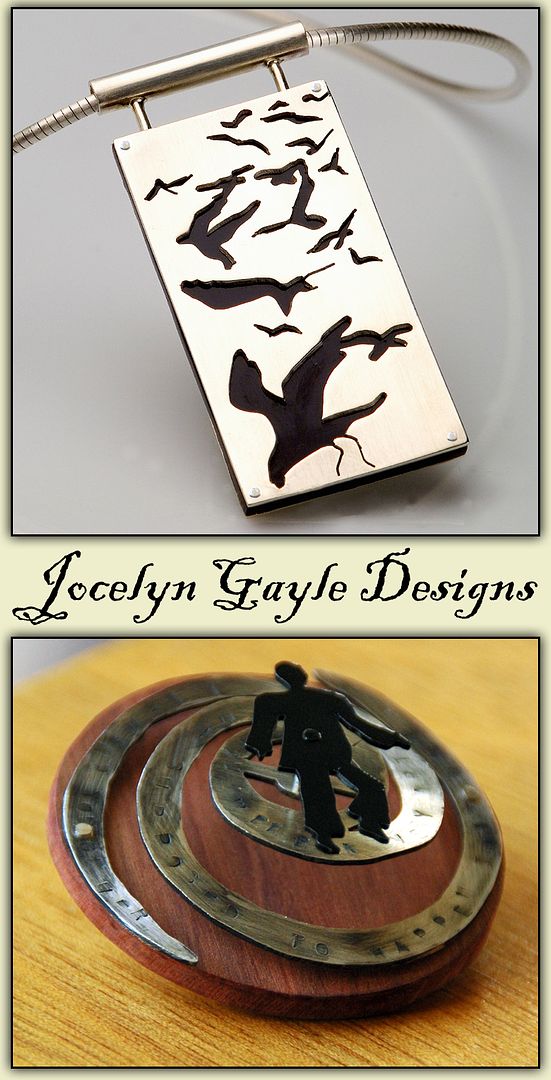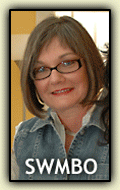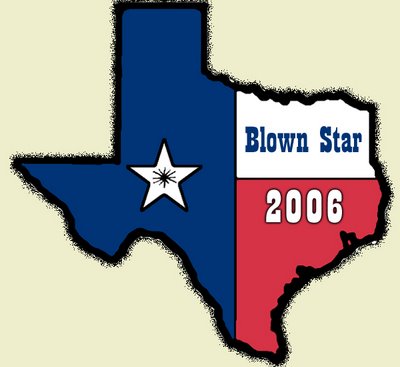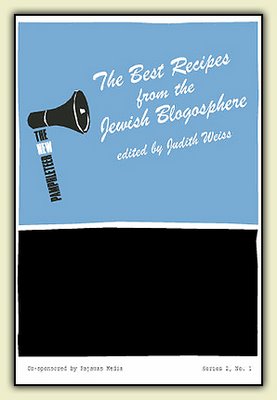This afternoon, I was pleased to receive a phone call from none other than Eric, the Straight White Guy hizzownself, who had a strange question: “Would you consider the Jewish people to be a warlike people?”
The question was not strange prima facie, but because it had been inspired by a nostalgia-soaked post I had written, a post in which I waxed rhapsodic about my late Grandmother’s cooking.
Eric, being about as far removed from the Eastern European Jewish milieu as it is possible to be, saw the unfamiliar Yiddish words, words that described (mostly) unfamiliar foods, and was put in mind of a similar language, one packed with difficult -to-pronounce gutturals and strange glottal stops, a language that is associated with a warlike people. Klingon.
Yes, Klingon.
Never mind that Klingon is a made-up language spoken by a fictional alien society (and not a few Earth-based übergeeks). It sounds - and is meant to sound - aggressive. And if Yiddish and/or Hebrew sounds remotely like Klingon, might it mean that the Jews are a warlike society?
Once upon a time, the Jews were a fairly aggressive nation, the adventures of which are well-documented in the Hebrew Bible. The aggression was limited in the sense that it had a narrow geographic focus, the Israelites being mainly interested in, well, Israel/Judea. But, depending on which bunch of Canaanite locals they were fighting, war with the Jews could be pretty serious. Take no prisoners serious.
But all that changed with the first and second Exiles, and the development of rabbinic Judaism - the type that is practiced by Jews today. Judaism is a belief system that cherishes life and peace. The considerable military might of Israel, the modern nation-state, is used for self-defense - all too necessary for a tiny nation in the midst of a sea of hostile neighbors - while a close look at Jewish society will fail to yield evidence of a bellicose, war-centric mindset. Jews are, emphatically, not Klingons.
So much for Eric’s question. And I don’t know whether the designer of the Klingon language, Marc Okrand, is Jewish, so I can’t speak to any inadvertent assonances. (Update: He is.)
But it got me to thinking, this notion that Yiddish and Klingon might sound even the slightest bit alike. To me, it’s ridiculous...but then again, I can listen to a Hindi music video and imagine that I’m hearing words like, “Oh shit, I’m a butter head.” So it really boils down to whether you know the language and are familiar with its sounds.
And you may recall the “Star-Mitzvah” episode of Frazier, the one in which Frazier Crane busts his ass studying so that he can deliver a blessing in Hebrew at his son’s Bar Mitzvah. But when he speaks, he is greeted with confused silence - because he has been tricked (by a pissed-off colleague) into reciting the blessing in Klingon.
So: how well do you know Yiddish? Or Klingon?
Why not try this little quiz? (Answers below the fold.)
Klingon Battle Terminology or Yiddish Food Item?
The question was not strange prima facie, but because it had been inspired by a nostalgia-soaked post I had written, a post in which I waxed rhapsodic about my late Grandmother’s cooking.
Eric, being about as far removed from the Eastern European Jewish milieu as it is possible to be, saw the unfamiliar Yiddish words, words that described (mostly) unfamiliar foods, and was put in mind of a similar language, one packed with difficult -to-pronounce gutturals and strange glottal stops, a language that is associated with a warlike people. Klingon.
Yes, Klingon.
Never mind that Klingon is a made-up language spoken by a fictional alien society (and not a few Earth-based übergeeks). It sounds - and is meant to sound - aggressive. And if Yiddish and/or Hebrew sounds remotely like Klingon, might it mean that the Jews are a warlike society?
Once upon a time, the Jews were a fairly aggressive nation, the adventures of which are well-documented in the Hebrew Bible. The aggression was limited in the sense that it had a narrow geographic focus, the Israelites being mainly interested in, well, Israel/Judea. But, depending on which bunch of Canaanite locals they were fighting, war with the Jews could be pretty serious. Take no prisoners serious.
But all that changed with the first and second Exiles, and the development of rabbinic Judaism - the type that is practiced by Jews today. Judaism is a belief system that cherishes life and peace. The considerable military might of Israel, the modern nation-state, is used for self-defense - all too necessary for a tiny nation in the midst of a sea of hostile neighbors - while a close look at Jewish society will fail to yield evidence of a bellicose, war-centric mindset. Jews are, emphatically, not Klingons.
So much for Eric’s question. And I don’t know whether the designer of the Klingon language, Marc Okrand, is Jewish, so I can’t speak to any inadvertent assonances. (Update: He is.)
But it got me to thinking, this notion that Yiddish and Klingon might sound even the slightest bit alike. To me, it’s ridiculous...but then again, I can listen to a Hindi music video and imagine that I’m hearing words like, “Oh shit, I’m a butter head.” So it really boils down to whether you know the language and are familiar with its sounds.
And you may recall the “Star-Mitzvah” episode of Frazier, the one in which Frazier Crane busts his ass studying so that he can deliver a blessing in Hebrew at his son’s Bar Mitzvah. But when he speaks, he is greeted with confused silence - because he has been tricked (by a pissed-off colleague) into reciting the blessing in Klingon.
So: how well do you know Yiddish? Or Klingon?
Why not try this little quiz? (Answers below the fold.)
Klingon Battle Terminology or Yiddish Food Item?
- jagh chuHchu’ SuvwI
- chremslakh
- jup'Iw HIq yltlhutlh
- YIHoH
- kreplach
- XanaX
- ghIntaq
- Heghlu’meH QaQ jajvam
- gehokte leber
- rugelakh





















No comments:
Post a Comment